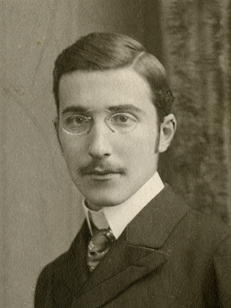“It is never until one realizes that one means something to others that one feels there is any point or purpose in one’s own existence.”
― Stefan Zweig, Beware of Pity
What does it mean to be a European? That may seem quite a loaded question, but for Stefan Zweig, accomplished early twentieth century Austrian author, it meant one thing: Freedom. I discovered Zweig upon my viewing of Wes Anderson’s The Grand Budapest Hotel, which Anderson stated was an attempt to ‘do a Zweig-esque thing’; I was then inspired to purchase the two books that the movie most closely mirrors – The World of Yesterday and Beware of Pity. This sense of freedom, that he so dearly valued, courses throughout these texts.
What struck me about The World of Yesterday was a sentiment that I’m sure a lot of us are feeling right now: Nostalgia. Zweig describes pre-war Austria as a world populated with a rich talent of creatives utterly devoted to the arts, a world which Zweig himself greatly adored, and he makes you adore it alongside him. We are taken on a journey through the coffee houses of Vienna, the homes of illustrious artists in Paris, and the mountains of Switzerland – going here and there with no thought for borders and passports. Zweig then charts the slow, uneasy decline of his Europe, rattled by war and corruption, and his own journey being chased out his homeland to England and subsequently Southern America, chastised and cast aside by past friends under the cold influence of the Nazi Party. Zweig has an ability to get you onto his side, to convince you of the beauty and worthiness of his world and his views. You are rooting for him, and while his life had a tragic end, this text isn’t a misery to read; it’s honest and moving. Today a modernisation of Zweig’s condition lives on in our current situation, as we too mourn the loss of a freer society, one that wasn’t so stiff and restricted.
Beware of Pity is Zweig’s only complete novel, with a narrative conjuring up a Jane-Austen-like sense of mild peril, based within the confines of polite society’s restrictive regulations. The protagonist commits a slight faux pas when asking a physically disabled girl to dance, which then snowballs into a complex relationship between the two, one in which they are both simultaneously trapped by a sense of pity – hence the title. Zweig’s characterisation is rich and detailed, and he captures the subtle intricacies of life, despite the grandiose setting: that of feeling bound by politeness, of the often uncomfortable nature of human interaction, and getting caught within a net of little white lies. Nestled within Zweig’s lush description and biting dialogue lie innate human truths: I would wholeheartedly recommend Zweig, whose deft creations are simultaneously escapist and realist, and speak directly to the heart of our emotional existence.
Image: Wikimedia Commons
Image is a portrait of Stefan Zweig

